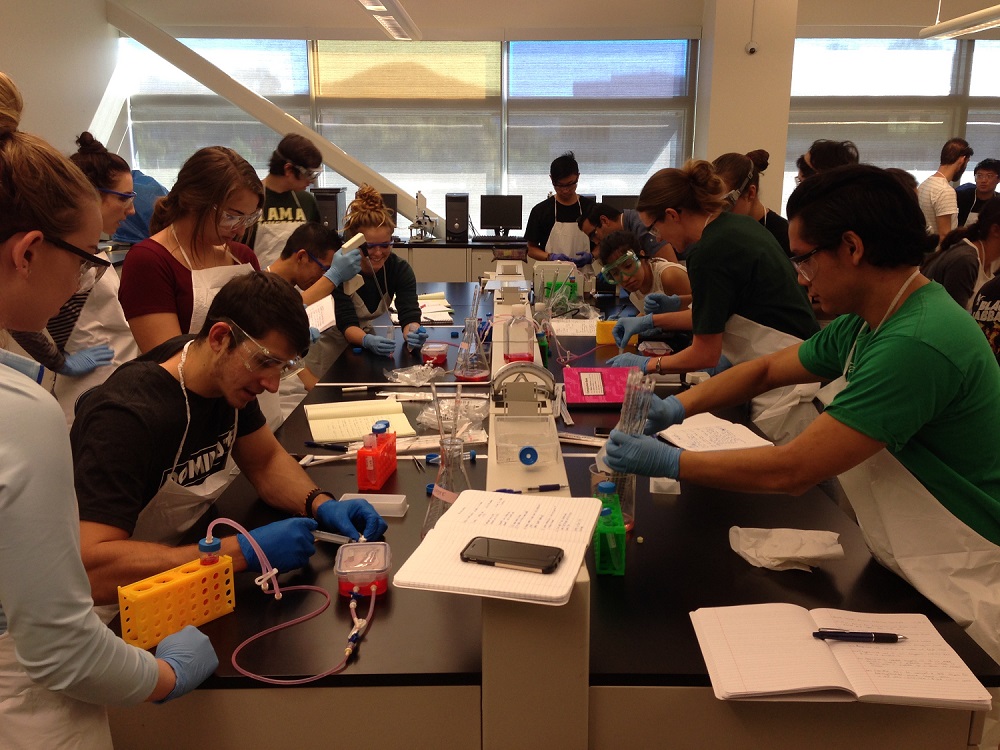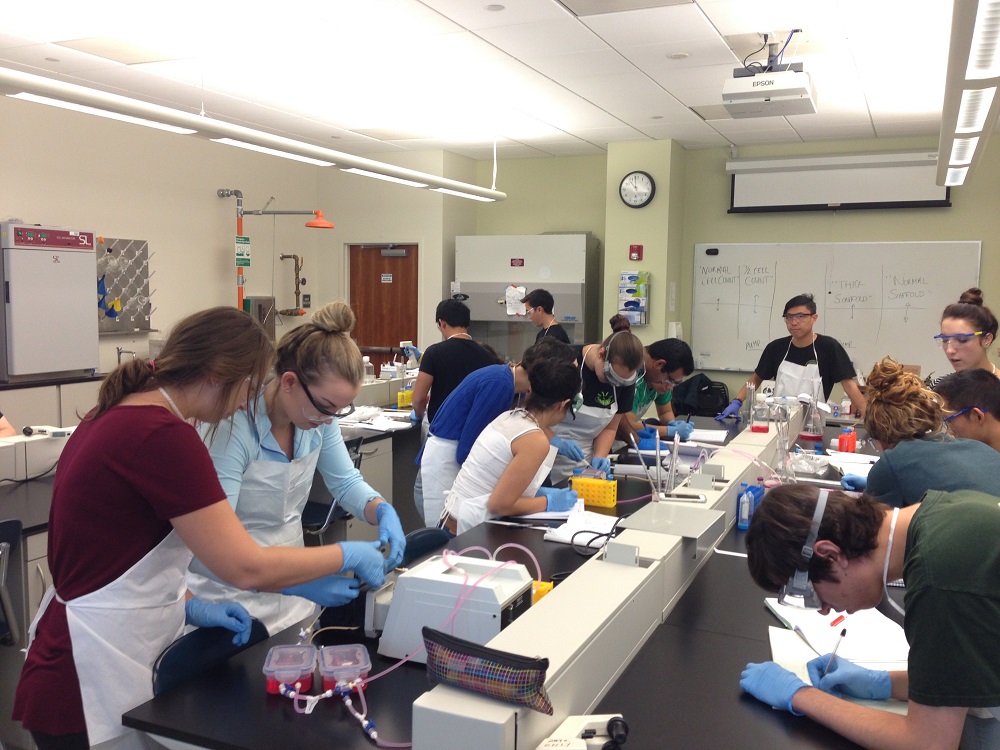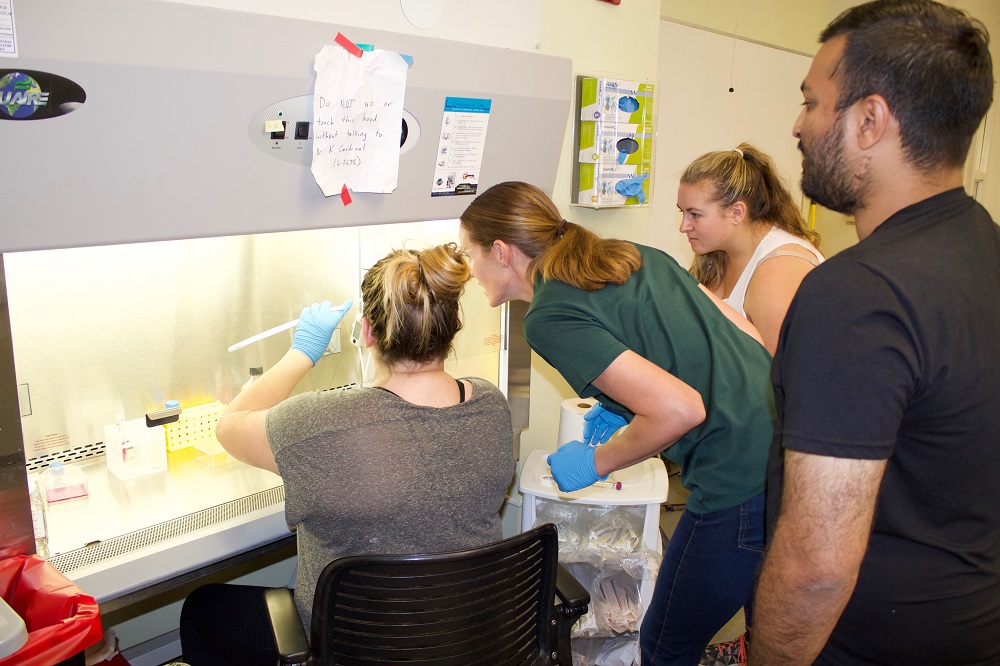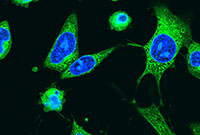Recent News

Internship Sites
May 21, 2019
Central to preparing students for careers in regenerative medicine is a rigorous internship at a company or academic laboratory focused on Regenerative Medicine and/or Stem Cell Research. The Internship will occur over nine-months (~Sep 1 - May 31) at one of our partner institutions. The Internship Project(s) will be designed to allow the students to progress from supervised to independent work, with the goal of collecting results of a publishable volume and quality. Find out more!

Orientation - Class of 2020
May 21, 2019
Students kick off their Degree with Orientation, a half-day session that includes a Program Overview, Study Plan Review, an Industry Career Panel, and Lunch. Meet the class of 2020!

Interdisciplinary Mentorship
May 21, 2019
Faculty from BME, Bio Sci, and Animal Sci teach and mentor students from those disciplines plus biochemistry, chemical engineering, and more through a collaborative & interdisciplinary curriculum. Find out more about our program!
Principles of Tissue Engineering - BMED 510
May 14, 2019
This course will focus on fundamental principles and current applications of tissue engineering. Lectures, discussions, and laboratories will be used to explore areas including cell source and isolation, scaffold selection and modification, bioreactor design and tissue cultivation, and patient implantation. Current applications of tissue engineering for the creation of skin, cartilage, bladder, blood vessels, and other tissues will be discussed.
At the end of the quarter, students will be able to:
- Demonstrate cell culture techniques and describe various cell source options for tissue engineering.
- Identify and discuss a range of biomaterials that can serve as tissue scaffolds and recommend appropriate scaffold modifications.
- Compare and contrast tissue cultivation methods and independently assemble and utilize a bioreactor system.
- Summarize obstacles and current successes regarding the development and implementation of tissue engineered constructs.




Introduction to Biomedical Imaging - BMED 515
May 14, 2019
The purpose of this course is to introduce students to the fundamental principles and applications of biomedical imaging microscopy modalities in medicine. Topics covered include basic light microscopy, fluorescence microscopy, confocal and multiphoton microscopy, scanning electron microscopy, and advanced microscopy techniques.
Course Objectives:
- Understand fundamental principles of various biomedical imaging modalities.
- Compare the diagnostic utility of images from different modalities.
- Critically evaluate scientific and medical literature.
- Analyze complex issues in diagnostic imaging.




Cell Transplantation & Biotherapeutics - BMED 560/1
May 14, 2019
The purpose of this course is to learn procedures including rodent handling, anesthesia, surgically modeling disease, biotherapy delivery, and visualizing/measuring therapeutic efficacy. There will also be an additional focus on experimental design, data collection, and analysis.
Following the completion of this course, students will be able to:
- Effectively handle & restrain mice.
- Effectively deliver anesthesia & analgesia to mice.
- Perform mouse survival surgery using aseptic technique.
- Perform muscle force production experiments with mice using consistent technique
- Perform fluorescence microscopy & quantitative morphometry
- Prepare figures to display, and use statistical analysis to draw conclusions from, experimental data
- Design sound experiments and interpret experimental data



Molecular Biology - BIO 475
May 14, 2019
The purpose of this course is to introduce techniques used in molecular biology and biotechnology including DNA and RNA extraction, characterization, cloning, reverse transcription, polymerase chain reaction, and sequencing analysis.
At the end of the quarter, students will be able to:
- Apply appropriate molecular biology techniques to answer biological questions.
- Interpret molecular data and plan experiments.
- Maintain a professional-quality laboratory notebook
- Read and interpret expert-level literature associated with molecular biology tools and techniques



